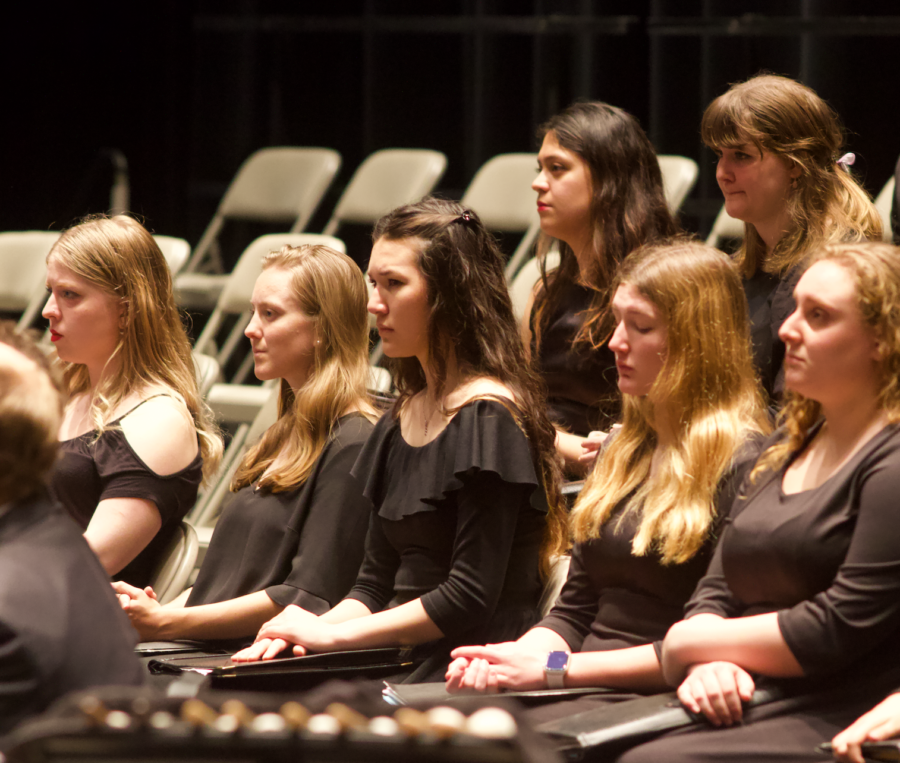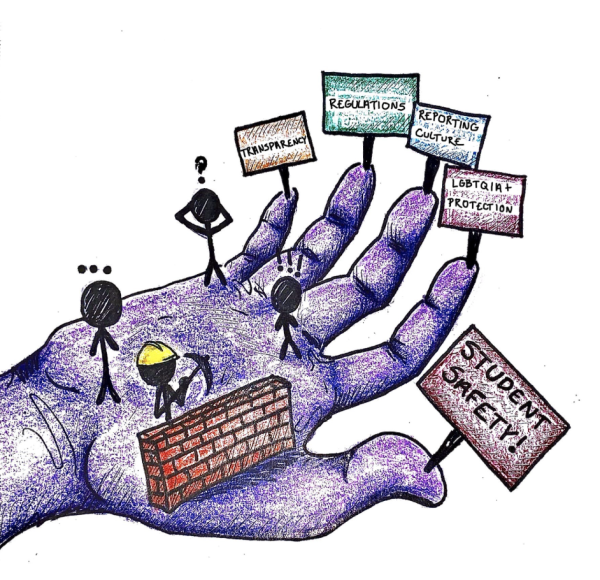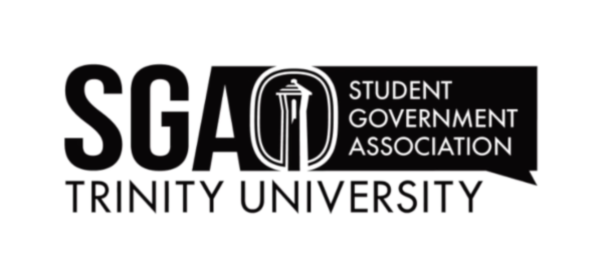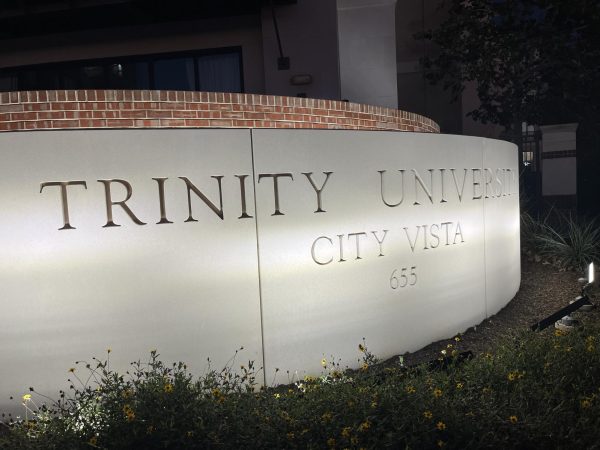This March, Trinity observes Women’s History Month
Organizations and departments hold events and offer resources to celebrate women
Trinity women in choir sing at the performance during Women’s History Month.
Trinity University rang in Women’s History Month with an array of events and services involving groups and departments across campus, from women and gender studies (WAGS), to the student diversity and inclusion office (SDIO), to the Student Government Association (SGA) to the music department.
SDIO hosted an International Women’s Tour on Wednesday, March 8 from 1-3 p.m. outside Coates Library. The celebration highlighted the achievements of international women through music, food and history. Students walked through different stops to fill out a “passport,” where they learned about important women throughout history, got information on the healthcare resources available to women on campus, left their fingerprints on an International Women’s Day poster and were rewarded with a paleta at the end.
Lindsi Reyes, first-year anthropology major and global Latinx studies minor, was the mastermind behind the event.
“It is important to recognize women’s efforts over history, especially women of color, because this type of diversity is what makes our society more inclusive and encouraging for women to continue to pursue higher education,” Reyes said.
In addition, SGA partnered with Aunt Flow, a period product company, to provide free, organic cotton pads and tampons through dispensers. The dispensers can be found in the first floors of Dicke Hall, Coates Student Center and Coates Library third floor.
SGA President Danny Nguyen clarified that these dispensers were not planned to accompany Women’s History Month but worked out well regardless.
“It is a great coincidence that our launch aligns with Women’s History Month, and we are excited to celebrate this month with our peers, classmates and friends all over campus,” Nguyen said.
Trinity University’s music department, specifically the women and music class alongside their symphony orchestra, welcomed the beginning of Women’s History Month with a “Choral Union.” The concert showcased a piece called “Requiem for the Victims of a Pandemic,” which was directed by the Trinity alumna and composer Yvonne Freckman.
Professor Kimberly Montford, associate professor of music history, explained the freedom she feels to share her interests in all of her teachings.
“I pride myself that I’m getting the students to think about and explore the ways music is expressive of things such as identity, social conditions and the environment around us,” Montford said.
Montford also offered a few words on the subject of intersectionality.
“Not all women are the same,” Montford said. “In terms of music made by women, we have to talk about things like social conditions, status, class, the view of women on that culture and how that is going to be reflected in their efforts, how many opportunities they are given to compose or perform.”
Additionally, Montford described the WAGS minor and the value it adds to Trinity’s community.
“[It] focuses on the way we perceive women, gender [and] members of LGBTQ,” Montford said. “I appreciate the faculty and students and the fact that I can encounter different viewpoints and perspectives.”
Kash Bhakta, sophomore human resource management major and WAGS minor, described her minor and the classes that came along with it as a space that fosters critical thought and discussion.
“An opportunity to talk about the world’s unspoken issues, especially oppression towards women. I enjoy the way class discussions encourage me to think and talk about situations that people usually feel uncomfortable talking about in settings,” Bhakta said.
With the beginning of Women’s History Month, Montford would like to leave the Trinity community with a proper commemoration of the event.
“While we still need this month, it’s saying something about what we’re lacking in our society,” Montford said. “Every year that we have it, means more and more people know about the contributions of women in all of these different fields. I dearly hope that we get to a point where women’s contributions are celebrated all the time without effort, without us having to make a thing out of it, but until we have that I believe this is a wonderful opportunity for people to build knowledge based on year after year.”






